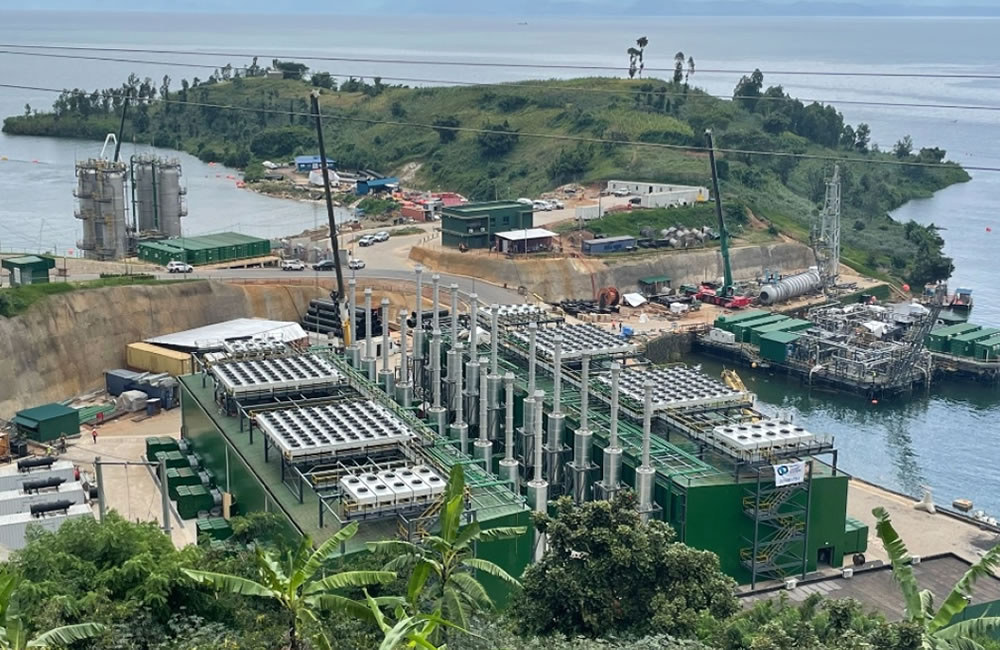KIGALI, Rwanda – Rwandans will soon benefit from a project that generate electricity from heating methane gas on a floating platform.
The project is being done in two phases and contracted to KivuWatt, a subsidiary of ContourGlobal.
Recently the company announced in the local media that completion of the first phase will be done by October.
Countour Global signed a 25-year Gas Concession Agreement with the government and a 25-year Power Purchase Agreement with the Rwanda Energy Group (REG)— Former Energy Water and Sanitation (EWSA).
The methane gas is formed from a mixture of geological and biological processes. The generation process involves the methane being combusted in a gas turbine. Usually this consists of a pump, combustion chamber, and the turbine, from which mechanical power is generated which is then turned to electrical with a generator
The combined investment for the two phases is estimated to reach $325 million, of which $142 million has been earmarked for phase one.
Project activities for phase one primarily involved the construction and installation of a 750 tonne floating barge integrating a gas extraction and treatment facility, a submerged, floating pipeline to transport the fuel gas ashore, an onshore gas receiving facility and power plant, and a temporary marine landing site (MLS) where the gas extraction facilities were assembled.
The offshore facilities are situated 12.5km from Kibuye, while the power plant is located on a 5.5ha site in the outskirts of Kibuye.
The extracted gas will be processed and pumped ashore for use by the power plant via a submerged floating pipeline.
The power plant will produce electricity using three 20-cylinder Wärtsilä 34SG gas-powered engines that have a combined capacity of 25MW.
Phase two will involve the installation of nine additional gensets with a combined capacity of 75MW, additional barges, gas extraction and treatment facilities, and submerged pipelines.
According Energy Private Developers, Rwanda at present much of the country’s energy is dominated by biomass, which accounts for 86.3% of the total. P
etroleum products account for the rest. Rwanda has one of the lowest electricity consumption per capita in the region, and generation capacity is low. The country currently has about 112 MW of installed capacity and only about 16% of households are connected to the grid.
Last week, the Rwanda Energy Group announced that Kenya will be supplying 30MW of electricity by the end of the year. Kenya recently commissioned the Olkaria 1 geothermal power plant which has added an extra 140MW to the national grid. Selling power to Rwanda is also part of the East African Power Pool project which promotes power exchanges between utilities in Eastern Africa region.
